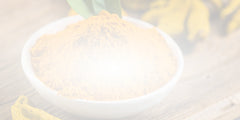
Getting to sleep can be a challenge, to the point of disrupting our ability to function when we fail to get any. To this end, the industry of sleep aid supplements has seen a massive spike in recent history. However, some people are averse to using the purely synthetic supplements sold by most pharmaceutical companies and would prefer something using more natural ingredients.
Lion's mane is a mushroom renowned for the many potential health benefits it offers both physically and mentally, making it an extremely popular supplement for use in improving our overall health.
To this end, people have begun investigating formulas based on lion's mane mushrooms for use in supplements to help cope with sleeping issues. The real question is, "how effective is it?" With this article, we hope to help enlighten you on whether lion's mane mushroom supplements can be of use in helping you get to sleep.
Does Lion's Mane Induce Drowsiness?
Now, you might be disappointed to learn that, despite the numerous benefits that the lion's mane might have for you, it does not affect your ability to fall asleep. This is because a lion's mane mushroom in and of itself possesses absolutely no compounds that induce drowsiness or sleep in any way.

While it does not make you tired, lion's mane might yet yield benefits that will still help you sleep soundly. This is primarily due to the anti-anxiety properties the mushroom exhibits. While hardly a guarantee for everyone who takes the supplements, the properties of the mushroom that reduce the effects of anxiety might help you enjoy a more restful sleep since the anxiety will have less of a hold over you during your rest.
Seeing as lion's mane cannot help you to fall asleep, the question of what exactly it can do for you remains.
What Does Lion's Mane Do?
Lion's mane mushroom, or Hericium Erinaceus, is an unusual-looking mushroom composed of large tubercules that are covered in long, hanging spines that produce the spores it needs to spread. Lion's mane is native to North America, Europe, and Asia, making it an extremely easy mushroom to acquire in many developed countries. The fruiting bodies of these mushrooms are edible and what is typically used in the production of supplements.

What benefits is the lion's mane mushroom known for that validates its use as a supplement? Depending on the amount of research you have done into the lion's mane mushroom, you might be shocked to learn that the lion's mane offers a plethora of potential health benefits.
Lion's mane mushrooms, while not thoroughly tested for their potential medicinal and health traits, have been showing promise in being able to help with mental deterioration. Specifically, conditions such as dementia and Alzheimer's. The reason for this belief comes from studies having discovered that lion's mane has substantial concentrations of Hericenones and Erinacines, compounds known for stimulating the growth of brain cells. Enhancing the growth of brain cells creates the potential to combat conditions that cause the deterioration and destruction of those same cells.
In addition to helping cope with degenerative neurological issues like Alzheimer's, there is evidence suggesting that lion's mane can also help with mental issues such as anxiety and depression. While we cannot determine every single cause of anxiety, there has been evidence linking the condition to chronic inflammation. Studies conducted on animals using lion's mane mushrooms suggest that the extract's anti-inflammatory properties can reduce the symptoms of anxiety.

On an internal level, studies using lion's mane mushroom point to potential in the mushroom helping in the recovery of our nervous system. Our nervous systems, which consist of our brains, spinal cords, and nerves, are extremely delicate. Injuries to them can be devastating. Some research has found that the lion's mane promotes the regeneration of the nerves, which in turn expedites the recovery process for anyone suffering from injuries that directly affect the nervous system.
Lion's mane can also potentially help with our digestive tract by preventing the development of ulcers. According to the information compiled thus far, this is because the lion's mane can reduce the concentration of the H. pyloribacterium by inhibiting its growth. Since H. pyloriis a well-known cause of ulcers in the digestive tract, reducing its ability to develop makes the mushroom a valuable tool in preventing such ulcers from growing.
Lion's mane also has the potential to help bolster our immune systems. Since the immune system regulates our bodies' ability to fend off diseases and viruses, improving upon it is always a good idea. Certain studies have uncovered that lion's mane mushrooms have the potential to enhance our immune system by stimulating our intestinal immune system and propagating a powerful gut bacterium that works in tandem to keep our immune systems up and running.
One of the final ways lion's mane mushrooms can benefit your health is by helping with cardiovascular health. Some research suggests that the mushroom can reduce the risk of heart disease. While the evidence for such claims is limited to animal testing so far, the promise is there. According to the studies that have been conducted, lion's mane can reduce the concentration of triglycerides in your system while simultaneously increasing your fat metabolism. Both of which are crucial to minimizing the risk of heart disease.

With all of the health benefits of the lion's mane, it makes taking supplements using the mushroom much more appealing. However, none of this has a bearing on how taking lion's mane can improve your sleep quality.
Does Lion's Mane Improve Sleep Quality?
While lion's mane mushrooms might not have the qualities you need to fall asleep, it still offers potential in helping improve the sleep you do get. As previously stated, lion's mane mushrooms are an anti-inflammatory that might help reduce the symptoms of anxiety, which can inhibit the quality of sleep you get.
Research suggests that the lion's mane mushroom helps maintain the flow of the sleep-wake cycle that all humans are subject to when sleeping. Studies conducted on mice have found that lion's mane mushrooms decrease the instances of waking up during REM sleep and can therefore be used in helping mitigate the consequences of delayed sleep syndrome. This means that lion's mane mushroom can help us stay asleep by reducing the stimuli that cause us to wake up in the middle of the night and therefore interrupt our REM cycles.

While not scientifically authenticated, an independent test conducted by YouTuber Katie Moore compared the effects of CBD oil against lion's mane mushrooms for maintaining REM sleep. According to the results, her REM sleep spiked higher after taking lion's mane than when she used CBD oil over a 2-week test period.
Per her article: "When taking Lion's Mane, my REM sleep consistently stayed higher than my base average, and I even saw a huge spike on the 15th — one of my highest nights of REM sleep ever. Then there was a dip in REM when I started taking CBD on the 17th and 18th. But if you look at CBD and its impact on my deep sleep, those scores stayed consistently high compared to my average. And you can see another dip on the 26th — the night I stopped taking CBD altogether."
While the evidence Ms. Moore presents is anecdotal due to no official backing from a scientific testing facility, her endorsement only increases the faith we can have in lion's mane as a boon to our REM sleep quality even if it cannot increase the quantity.
With this information in mind, it is safe to say that lion's mane can improve sleep quality even if it cannot help induce it. However, there remain certain details to consider before you commit to taking lion's mane supplements.
When Should You Take It?
As with any supplement or medication, timing is key when taking it. Take a supplement too soon, and the effects will take hold before they can be of benefit. Take it too late, and the effects will not be as potent as they are supposed to be. So, when it comes to taking a lion's mane supplement to help improve the quality of your REM sleep, you will want to take it at a precise time every night to maximize the benefits you can enjoy from it.
We recommend taking your lion's mane supplement anywhere between 30 minutes to 1 hour before going to bed to ensure the maximum effect on your REM sleep cycle. As for the dosage amount, it is recommended to take 1 to 2 grams of lion's mane to get a healthy amount of the mushroom into your system.

However, it should be considered that not everyone will react to mushroom supplements in the same way. With lion's mane, the improvements to REM sleep are common but are not the only possible reaction you might experience. Some people instead have the inverse effect and become more energized and awake after taking a nutritional supplement. To avoid turbocharging yourself before bed, we recommend trying the supplements earlier in the day to determine exactly how the mushroom might affect you. If you receive a boost in energy, you might want to reconsider taking lion's mane supplements to improve your sleep cycle.
Knowing how to take a supplement is extremely important. Most supplement capsules make up half the recommended dosage, so taking two capsules at the prescribed time will allow you to reap the benefits of the lion's mane. If you need to purchase a lion's mane supplement, we sell bottles of 120 capsules, each capsule containing 1,000mg (1 gram) of lion's mane.
However, even with naturally based supplements, it is imperative to note that almost everything can come with a catch. Therefore, when taking a supplement, being aware of any potential side effects is crucial to maintaining healthy habits.
Side Effects
When it comes to the health and safety of supplements, it is always wise to keep an eye out for potential side effects before you begin your regimen. For lion's mane, the side effects are minimal if not non-existent in most cases.
Studies were conducted on rats who were given 2.3 grams per pound of lion's mane every day for a month, and no side effects were documented among any of the rats. This indicates that there are no significant side effects that can be traced to lion's mane specifically, though this does not mean it is 100% free from risk.
Anyone who has an allergy to mushrooms or fungi of any kind should avoid lion's mane altogether, lest you fall prey to whatever potential effects your allergy inflicts upon you. There have been rare cases documented of people having trouble breathing or suffering from rashes after being exposed in some way to lion's mane mushrooms. These effects have been attributed to allergies, demonstrating the necessity of keeping track of your allergies.

If you are unsure if you have an allergy to fungi, contact your primary care physician to get tested as soon as possible before attempting to take any lion's mane supplements.
Wrapping Up
Lion's mane mushrooms are one of the most popular health-boosting fungi in the world. However, for all its health benefits and potential, it has very little to do with helping you fall asleep. Since none of the compounds within the mushroom induces drowsiness, it is not going to help you overcome your insomnia.
All supplements have details to consider, including dosage, timing, and side effects. Fortunately, the lion's mane is an easy supplement to track.

While lion's mane will not help you to fall asleep, it can still help you enjoy a more restful sleep at night with its anti-anxiety properties boosting the quality of your REM sleep. The research on lion's mane remains incomplete, however. As always, if you have any concerns regarding the effects the lion's mane is having on you, contact your primary care physician.
Please feel free to reach out at any time if you have any additional comments or questions! And please, stay happy and healthy.






